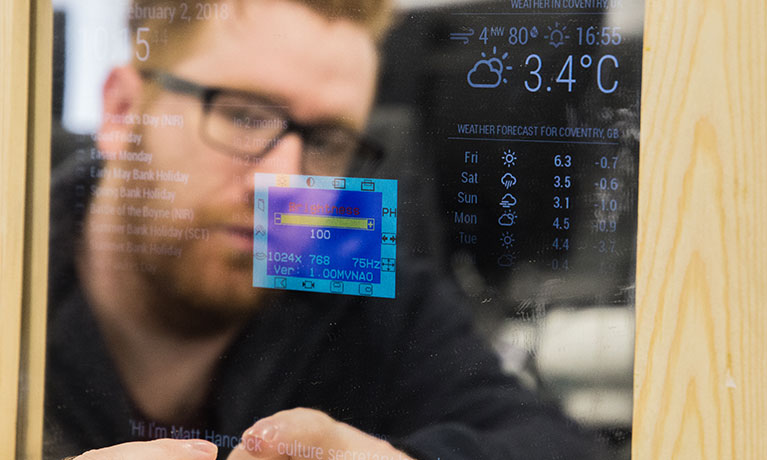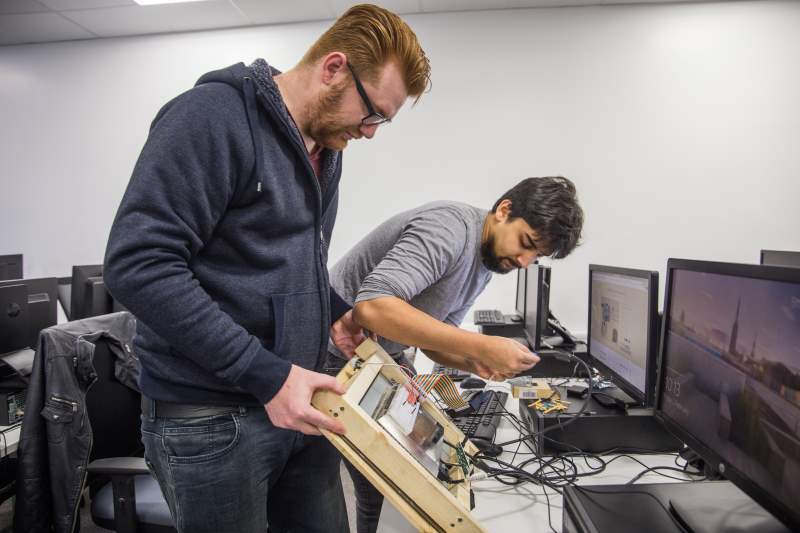Search
CU Coventry students build innovative smart mirror

news
Wednesday 02 May 2018
Press contact
Students in Coventry are looking to change the way consumers receive information by creating a product that will immerse them into a digital world.
Karl Brown and Callum Silva, IT students at CU Coventry, have designed and built a smart mirror as part of their final year project on the BSc Digital & Technology Solutions course.
The innovative mirror can display everything from the time and the weather to social media sites, videos and newsfeeds while remaining reflective.
Although a limited number of similar products are available, Karl and Callum have tailored their mirror design for hairdressers and barbershops so that customers can link it to their smart devices and browse the internet or access apps while having their hair cut.
It also features a motion sensor which includes a time and date stamp to allow businesses to track how often the device is used.
The students are now looking to develop the idea further to target retail stores, using facial recognition technology in conjunction with the motion sensors to trigger digital advertising tailored to the individual.

Karl Brown and Callum Silva fine-tune their prototype.
Callum said:
We were given a project where we had to develop something using a certain algorithm program which is when we came up with the idea of the smart mirror.
We took an old computer monitor and used this to develop our prototype. We came across a number of challenges along the way, particularly when trying to get the motion sensor to work, but we’re really pleased with our end product.
It’s designed to be controlled using portable smart devices such as mobile phones and tablets, meaning that it can be used by businesses who can, in turn, enable consumers to access the mirror.
This means that someone could be watching a video or updating their status on social media while having a short back and sides.
Karl added:
There are so many possibilities with the mirror, and now we have a base concept we are looking at developing our prototype into something that could be commercialised.
One of the things we want to explore is facial recognition software which would make the product suitable for the retail industry. The mirror could be based in shops such as clothes stores and would be able to identify a person’s gender and deliver tailored advertising to suit the individual.
Callum, from London, moved to the city for the course as it provides hands-on experience which boosts employability, while Karl, a mature student from Coventry, wanted flexible study options which fit around his two children.
Karl said:
The course is realistic in terms of what we’d be doing in industry and gave us the opportunity to create tangible products. Completing one module at a time also allowed us to study subjects in-depth and the flexible timetable works well for those with external commitments.




